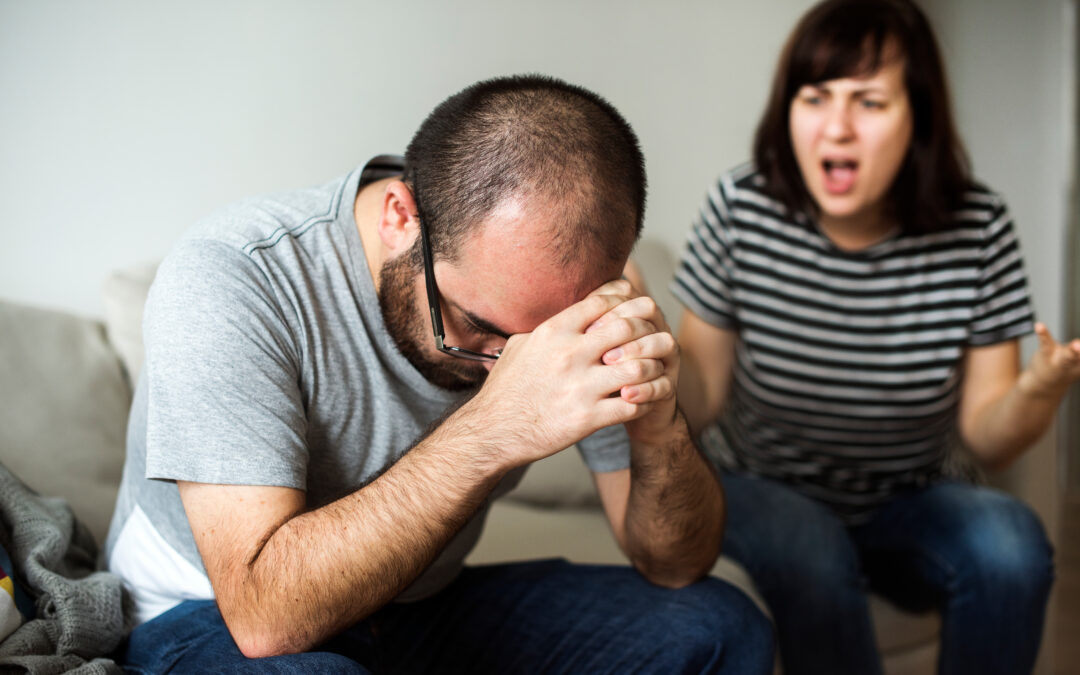On 19th November we will celebrate International Men’s Day, an opportunity to celebrate the positive values men bring to the world and the strong role models we have in our lives. The month of November also reminds us of the acute vulnerabilities men can face and the brutal truths they can often hide. ‘Movember’ is an increasingly important initiative to highlight the unique health concerns that men may face, this includes domestic violence against men which is receiving some long overdue exposure.
Domestic violence is one of the most common crimes reported in the UK. However, many incidents don’t even get reported as people can often be blind to the fact that they are in an abusive relationship, becoming acclimatised to the behaviour and normalising this, and some are simply too embarrassed to seek help, often the case for men. Being in an abusive relationship can be a deeply traumatising experience, and whilst the vast majority of victims are women, this abuse is not restricted to women and men are also subject to abuse, as are children whether directly or indirectly.
No ‘shame’ in accepting you are the victim of domestic abuse
‘Shame’ is a word often used in connection to domestic abuse. Victims blame themselves and feel that they are weak, and often are too humiliated to speak up about the issues they are facing. This is particularly the case for men, who apart from anything else, are so often proven to be the perpetrators of domestic abuse against women and children. However, because historical stereotypes promote the male figure of the home as the proud, dominant and resilient leader, it can seem inconceivable to some that men can also be victims of abuse.
Domestic abuse against men has come to the fore in November 2024 upon the release of a two-part Netflix docu-series called “My Wife, My Abuser: Caught on Camera”. This tells the real-life story of Richard Spencer, who was physically and mentally abused by his wife Sheree for over 20 years. Chilling footage was captured by secret cameras Richard had set up in his home, showing physical attacks and merciless abuse dealt out, often in front of the couples three children. Sheree was sentenced to four years in prison in 2023.
The story perfectly summarised the stigma surrounding domestic abuse against men, with a clearly broken Richard feeling ashamed of the situation and unable to speak out and report the repeated violence and abuse he had suffered for many years. In the end a close friend became aware of the issue and reported it to the police, Richard never did.
One third of domestic abuse victims are male
In 2015 the law was changed to make coercive control a criminal offence, and it is felt this is a major factor in domestic abuse crimes increasing over the last decade. The charity Man Kind – an initiative supporting male victims of domestic abuse – released figures in 2018 that showed a quarter of all victims of reported domestic abuse issues in the UK were men. By 2020, the Office for National Statistics reported that this had grown to one third (757,000 cases were relating to men out of a total of 2.38 million). And in March 2023, these figures were roughly the same.
So, one third of victims of domestic abuse are male, and yet television viewers are so “shocked and sickened” by a TV documentary series because it depicts a situation we see as unusual. Clearly domestic abuse against men is being massively underreported and it is time to end the stigma attached to it. Great strides have been taken in recent years in men accepting their vulnerabilities, with the growth of groups such as Andy’s Man Club, a suicide prevention charity successfully encouraging men to talk to each other about their mental health issues.
Movember is also a hugely positive movement to highlight the fact that men die on average 4.5 years earlier than women, and 10.8million men worldwide are currently living with a prostate cancer diagnosis. International Men’s Day on November 19th is another way we can positively shine a light on a societal demographic who can find it impossible to admit that they are the victim.
These domestic abuse statistics suggest that this is the case far more often than the majority of us realise. Clearly, the ability to assert power and control and to be inflexible to the likelihood of changing behaviour is not just a male domain, and men too can be the victim of physical abuse, isolation, gaslighting, verbal abuse, threatening behaviour, emotional and psychological abuse, coercive control, economic and financial abuse and sexual abuse.
Legal and emotional support for male victims of domestic abuse
A stigma attached to male victims of domestic abuse still exists, and this is propped up by reports from victims of a lack of empathy and support from healthcare professionals and family networks, as well as limited funding for helplines and support groups dedicated to males. These all combine to prevent the male victim recognising that they are actually a victim. However, just like women or children, men need support and resources to help them acknowledge that, in a situation of domestic abuse, they are not to blame, they are not weak and they are not alone. And perhaps most importantly, they are not a victim but a survivor.
If you or a male that you know has been subjected to domestic abuse, contact our team at Consilia Law today. We have dedicated expertise in supporting people in situations where they have faced domestic abuse, and can help them recover from this ordeal emotionally and physically. This involves working out the right pathway to escaping the situation and putting a legal framework in place to secure a stable and progressive future. So get in touch with our team today.

